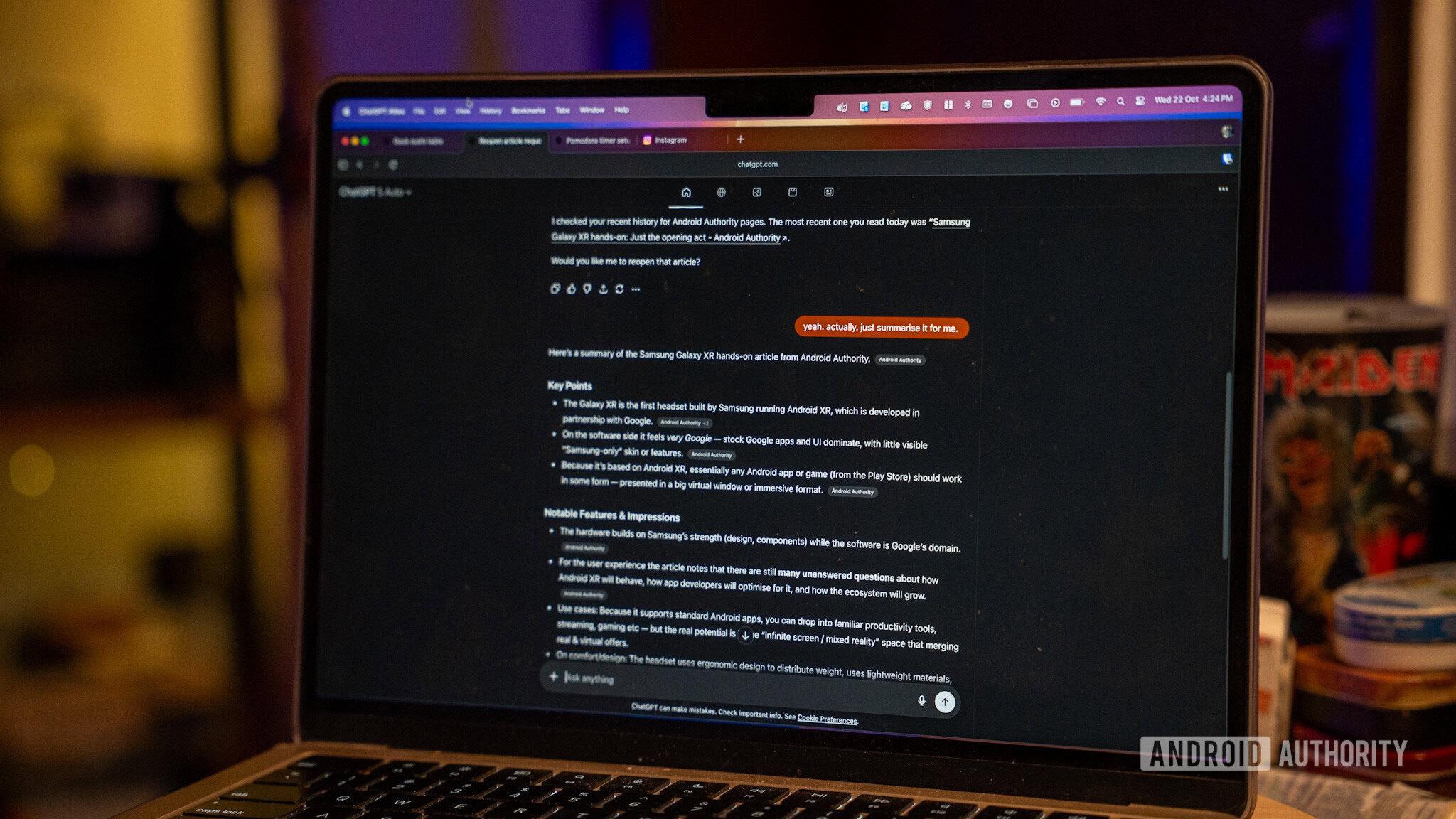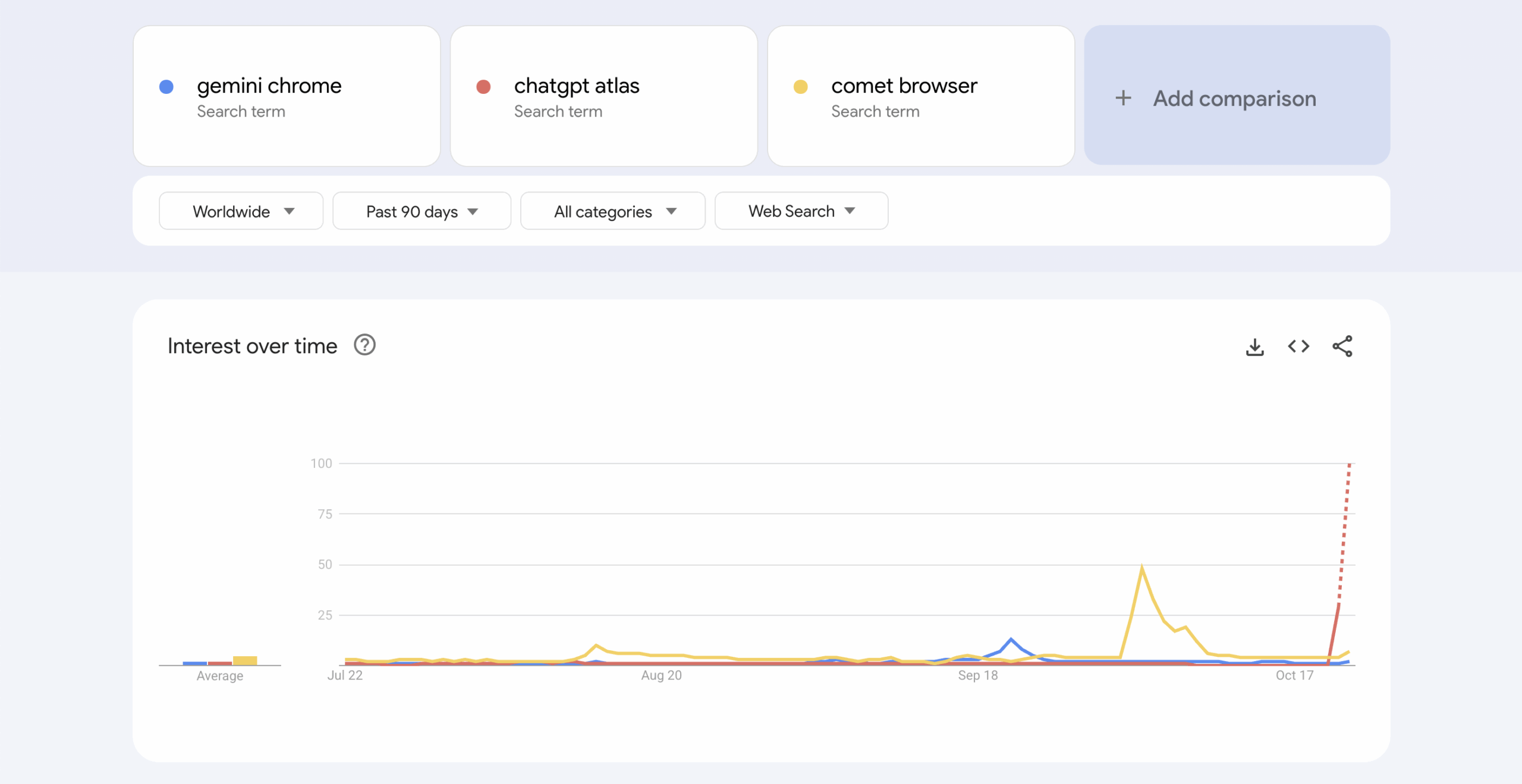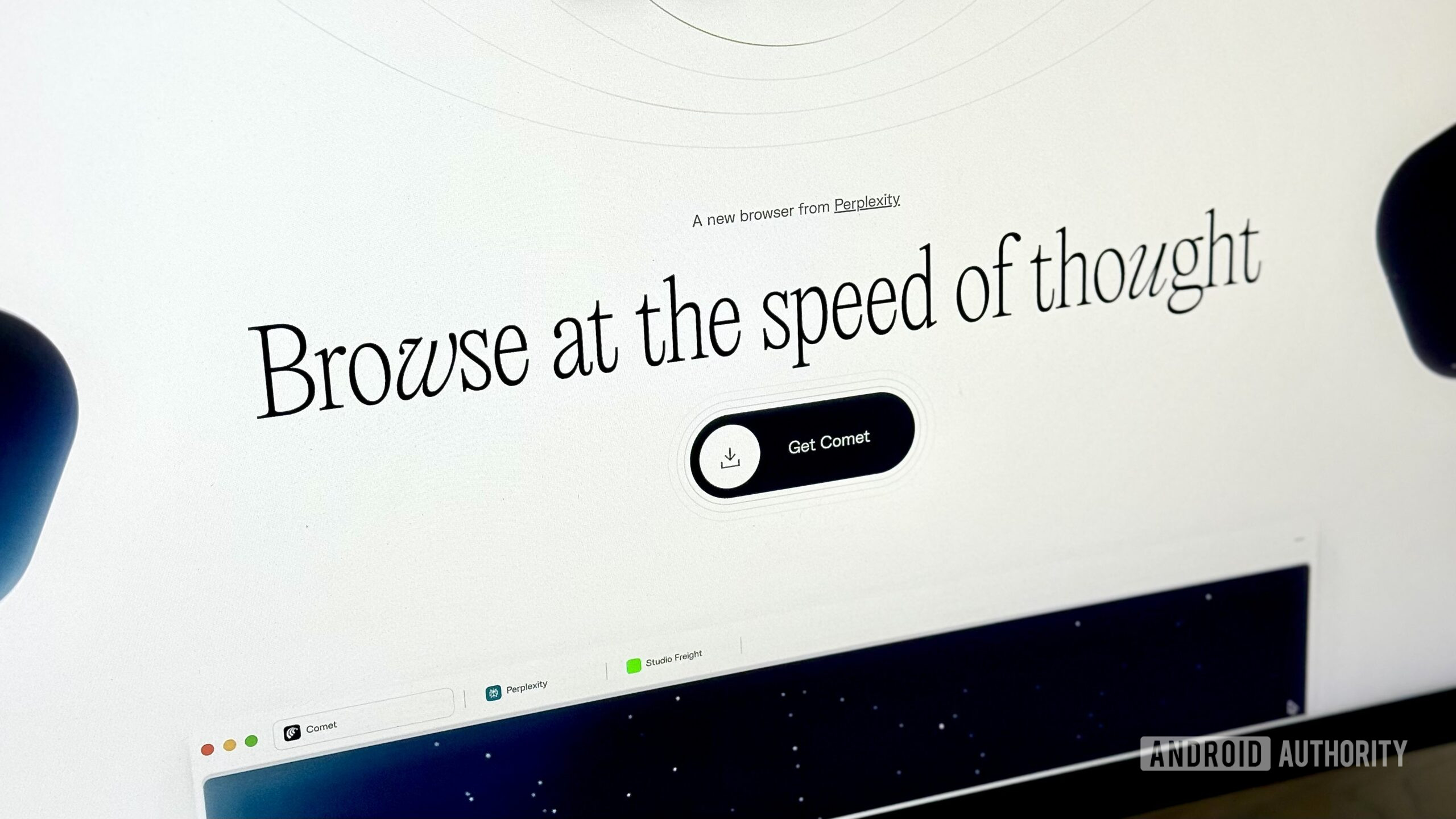- Регистрация
- 15 Февраль 2018
- Сообщения
- 15 583
- Лучшие ответы
- 0
- Реакции
- 0
- Баллы
- 1 295
Offline

Dhruv Bhutani / Android Authority
 terday, ChatGPT announced its new AI-powered browser, Atlas, and I’ve already installed it on my computer to give it a whirl. There shouldn’t be anything surprising about this, right? Well, it isn’t. What is surprising is the fact that Google announced its Gemini integration in Chrome more than a month ago, and I still don’t have access to it.
terday, ChatGPT announced its new AI-powered browser, Atlas, and I’ve already installed it on my computer to give it a whirl. There shouldn’t be anything surprising about this, right? Well, it isn’t. What is surprising is the fact that Google announced its Gemini integration in Chrome more than a month ago, and I still don’t have access to it.The reason is simple: I live in France, not the US. And Google has decided that Chrome’s Gemini integration is a privilege only Americans get to try, thus locking out the rest of the world. Meanwhile, OpenAI has an “everybody welcome” approach, with no georestrictions on its Atlas browser.
Guess which browser people are talking about? Downloading? Integrating into their daily lives? Atlas — of course, it’s Atlas. Because some people do live outside the US, give or take a few billion. And no, this isn’t just a matter of people hopping on the latest and newest; a quick look at Google Trends for the keyword searches around “Gemini in Chrome” (or Gemini Chrome), “Comet browser” (or Perplexity Comet), and “ChatGPT Atlas” (or Atlas browser) reveals that interest in Atlas is stratospherically higher than interest in Chrome’s Gemini integration ever was. Even Perplexity’s Comet browser has had a leg up on Gemini in Chrome for months.
Are you using an AI-powered browser?
22 votes
 , I just adopted ChatGPT Atlas.
, I just adopted ChatGPT Atlas.9%
 , I'm using Perplexity's Comet Browser.
, I'm using Perplexity's Comet Browser.14%
 , I have Gemini in my Chrome browser.
, I have Gemini in my Chrome browser.9%
 , I'm using another AI-powered browser (tell us in the comments).
, I'm using another AI-powered browser (tell us in the comments).5%
No, but I've installed an AI extension in my existing browser.
18%
No.
45%

Google Trends
I’m not surprised that people are more interested in the browsers they can try and the features they can use, as opposed to the ones they don’t have access to because of a silly imposed geographical limitation. I’m exactly like them. I admit, when I first read about Atlas, the thought of Gemini in Chrome didn’t even cross my mind because it’s not something I’ve ever been able to use.
Google had all the headway of the world, but it stumbled by making Gemini in Chrome a US-only feature.
Sadly, Google seems to be once again losing the AI race to people’s hearts and falling into a trap it should’ve seen coming many moons ago. Today, ChatGPT reportedly has more than 80% of the AI chatbot market share, while Gemini is sitting at a meek 2% or so. (The numbers don’t account for the “hidden” use of Gemini in your Android phone or apps, but they still bleakly point out that people go to ChatGPT way more than Gemini.) The reason isn’t that ChatGPT is 40 times better than Gemini now, although there may have been a time in the super early days where it was, but ChatGPT went viral instantly and was able to ride that wave with a move-fast, break-things approach. Google joined the race late, confused everyone with the Bard name before settling on Gemini, was super cautious with its AI features to avoid ruffling feathers, and paid the price in the long run.
Don’t want to miss the best from Android Authority?



Karandeep Singh / Android Authority
Having lost that chatbot race, you’d think that Google would’ve used any advantage it had to shuffle the users it lost back to Gemini. It did focus a lot of its efforts on integrating Gemini into everyone’s mobile experience, but it left the browser front completely unprotected. While Gemini started thriving with tighter integrations on my Pixel, my Gemini experience on my computer remained as basic as typing gemini.google.com and using it there. I really wanted Gemini in my Chrome browser to summarize pages, ask questions when a simple find-in-page didn’t find the correct answer, and help me with research across multiple sites and tabs, and Google could’ve and should’ve provided that a long time ago. Instead, I had to use the Perplexity extension to scratch that itch.
OpenAI has everyone talking about Atlas because everyone can try Atlas today, not in a few months, maybe, possibly, when it rolls out to them.
Sure, Gemini did launch in Chrome a month ago, on paper, but where is it actually? Only 4% of the world’s population lives in the US, so only 4% of humans on this Earth can use Gemini in their browser… if they even know it exists. Google had the immeasurable advantage of Chrome being already installed on millions of computers worldwide and not requiring people to download a new app. It also launched a month earlier, and it still managed to shoot itself in the foot. Sigh.
Even by limiting itself to macOS first (10-15% of all computer users), OpenAI has kept a larger pool of potential users than Gemini in Chrome, and that’s with the handicap of needing people to download and install Atlas. Plus, it managed to get everyone across the world talking about it, not just US journalists and techies, because everyone can immediately try it instead of waiting for months to get a whiff of it.
Integrating Gemini into Chrome should've been an easy win. Instead, it's a feature we've forgotten about.
I’m afraid that Google has stumbled and fallen with its second chance at capturing some decent AI market share and user goodwill. Integrating Gemini into Chrome, the default browser that two-thirds of users already have on their computers worldwide, should’ve been an easy win. Instead, it’s a feature we’ve forgotten about because, in true Google fashion, it’s only available to US users. This, of all features, shouldn’t have been.
Thank you for being part of our community. Read our Comment Policy before posting.
